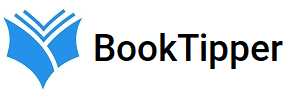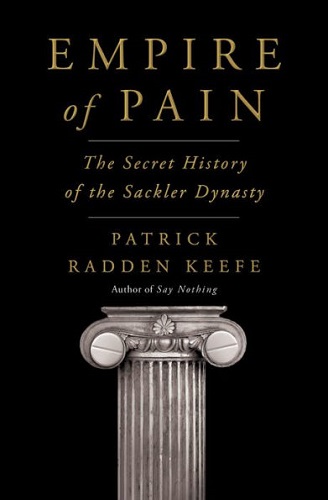
EMPIRE OF PAIN
by Patrick Radden Keefe
A NEW YORK TIMES NOTABLE BOOK OF THE YEAR • NEW YORK TIMES BEST SELLER • A grand, devastating portrait of three generations of the Sackler family, famed for their philanthropy, whose fortune was built by Valium and whose reputation was destroyed by OxyContin. From the prize-winning and bestselling author of Say Nothing
The history of the Sackler dynasty is rife with drama—baroque personal lives; bitter disputes over estates; fistfights in boardrooms; glittering art collections; Machiavellian courtroom maneuvers; and the calculated use of money to burnish reputations and crush the less powerful. The Sackler name has adorned the walls of many storied institutions—Harvard, the Metropolitan Museum of Art, Oxford, the Louvre. They are one of the richest families in the world, known for their lavish donations to the arts and the sciences. The source of the family fortune was vague, however, until it emerged that the Sacklers were responsible for making and marketing a blockbuster painkiller that was the catalyst for the opioid crisis.
Empire of Pain begins with the story of three doctor brothers, Raymond, Mortimer and the incalculably energetic Arthur, who weathered the poverty of the Great Depression and appalling anti-Semitism. Working at a barbaric mental institution, Arthur saw a better way and conducted groundbreaking research into drug treatments. He also had a genius for marketing, especially for pharmaceuticals, and bought a small ad firm.
Arthur devised the marketing for Valium, and built the first great Sackler fortune. He purchased a drug manufacturer, Purdue Frederick, which would be run by Raymond and Mortimer. The brothers began collecting art, and wives, and grand residences in exotic locales. Their children and grandchildren grew up in luxury.
Forty years later, Raymond’s son Richard ran the family-owned Purdue. The template Arthur Sackler created to sell Valium—co-opting doctors, influencing the FDA, downplaying the drug’s addictiveness—was employed to launch a far more potent product: OxyContin. The drug went on to generate some thirty-five billion dollars in revenue, and to launch a public health crisis in which hundreds of thousands would die.
This is the saga of three generations of a single family and the mark they would leave on the world, a tale that moves from the bustling streets of early twentieth-century Brooklyn to the seaside palaces of Greenwich, Connecticut, and Cap d’Antibes to the corridors of power in Washington, D.C. Empire of Pain chronicles the multiple investigations of the Sacklers and their company, and the scorched-earth legal tactics that the family has used to evade accountability.
Empire of Pain is a masterpiece of narrative reporting and writing, exhaustively documented and ferociously compelling. It is a portrait of the excesses of America’s second Gilded Age, a study of impunity among the super elite and a relentless investigation of the naked greed and indifference to human suffering that built one of the world’s great fortunes.
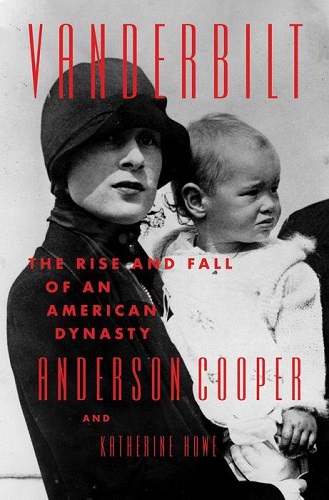
VANDERBILT: THE RISE AND FALL OF AN AMERICAN DYNASTY
by Anderson Cooper
New York Times bestselling author and journalist Anderson Cooper teams with New York Times bestselling historian and novelist Katherine Howe to chronicle the rise and fall of a legendary American dynasty—his mother’s family, the Vanderbilts.
One of the Washington Post’s Notable Works of Nonfiction of 2021
When eleven-year-old Cornelius Vanderbilt began to work on his father’s small boat ferrying supplies in New York Harbor at the beginning of the nineteenth century, no one could have imagined that one day he would, through ruthlessness, cunning, and a pathological desire for money, build two empires—one in shipping and another in railroads—that would make him the richest man in America. His staggering fortune was fought over by his heirs after his death in 1877, sowing familial discord that would never fully heal. Though his son Billy doubled the money left by “the Commodore,” subsequent generations competed to find new and ever more extraordinary ways of spending it. By 2018, when the last Vanderbilt was forced out of The Breakers—the seventy-room summer estate in Newport, Rhode Island, that Cornelius’s grandson and namesake had built—the family would have been unrecognizable to the tycoon who started it all.
Now, the Commodore’s great-great-great-grandson Anderson Cooper, joins with historian Katherine Howe to explore the story of his legendary family and their outsized influence. Cooper and Howe breathe life into the ancestors who built the family’s empire, basked in the Commodore’s wealth, hosted lavish galas, and became synonymous with unfettered American capitalism and high society. Moving from the hardscrabble wharves of old Manhattan to the lavish drawing rooms of Gilded Age Fifth Avenue, from the ornate summer palaces of Newport to the courts of Europe, and all the way to modern-day New York, Cooper and Howe wryly recount the triumphs and tragedies of an American dynasty unlike any other.
Written with a unique insider’s viewpoint, this is a rollicking, quintessentially American history as remarkable as the family it so vividly captures.
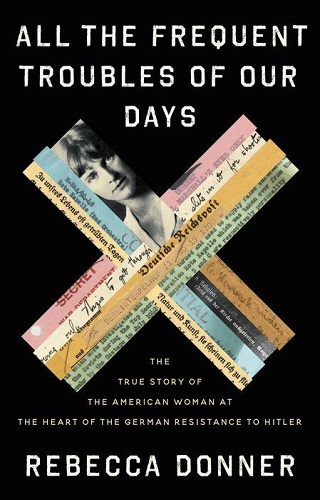
ALL THE FREQUENT TROUBLES OF OUR DAYS
by Rebecca Donner
The INSTANT New York Times Bestseller
Longlisted for the 2022 PEN/Jacqueline Bograd Weld Award for Biography
A New York Times Notable Book of 2021
A New York Times BookReview Editors’ Choice
A New York Times Critics’ Top Pick of 2021
Wall Street Journal 10 Best Books of 2021
Time Magazine 100 Must-Read Books of 2021
Publishers Weekly Top Ten Books of 2021
An Economist Best Book of the Year
A New York Post Best Book of the Year
Oprah Daily Best New Books of August
A New York Public Library Book of the Week
In this “stunning literary achievement,” Donner chronicles the extraordinary life and brutal death of her great-great-aunt Mildred Harnack, the American leader of one of the largest underground resistance groups in Germany during WWII—“a page-turner story of espionage, love and betrayal” (Kai Bird, winner of the Pulitzer Prize for Biography)
Born and raised in Milwaukee, Mildred Harnack was twenty-six when she enrolled in a PhD program in Germany and witnessed the meteoric rise of the Nazi party. In 1932, she began holding secret meetings in her apartment—a small band of political activists that by 1940 had grown into the largest underground resistance group in Berlin. She recruited working-class Germans into the resistance, helped Jews escape, plotted acts of sabotage, and collaborated in writing leaflets that denounced Hitler and called for revolution. Her coconspirators circulated through Berlin under the cover of night, slipping the leaflets into mailboxes, public restrooms, phone booths. When the first shots of the Second World War were fired, she became a spy, couriering top-secret intelligence to the Allies. On the eve of her escape to Sweden, she was ambushed by the Gestapo. At a Nazi military court, a panel of five judges sentenced her to six years at a prison camp, but Hitler overruled the decision and ordered her execution. On February 16, 1943, she was strapped to a guillotine and beheaded.
Historians identify Mildred Harnack as the only American in the leadership of the German resistance, yet her remarkable story has remained almost unknown until now.
Harnack’s great-great-niece Rebecca Donner draws on her extensive archival research in Germany, Russia, England, and the U.S. as well as newly uncovered documents in her family archive to produce this astonishing work of narrative nonfiction. Fusing elements of biography, real-life political thriller, and scholarly detective story, Donner brilliantly interweaves letters, diary entries, notes smuggled out of a Berlin prison, survivors’ testimony, and a trove of declassified intelligence documents into a powerful, epic story, reconstructing the moral courage of an enigmatic woman nearly erased by history.

THE CODE BREAKER
by Walter Isaacson
A Best Book of 2021 by Bloomberg BusinessWeek, Time, and The Washington Post
The bestselling author of Leonardo da Vinci and Steve Jobs returns with a “compelling” (The Washington Post) account of how Nobel Prize winner Jennifer Doudna and her colleagues launched a revolution that will allow us to cure diseases, fend off viruses, and have healthier babies.
When Jennifer Doudna was in sixth grade, she came home one day to find that her dad had left a paperback titled The Double Helix on her bed. She put it aside, thinking it was one of those detective tales she loved. When she read it on a rainy Saturday, she discovered she was right, in a way. As she sped through the pages, she became enthralled by the intense drama behind the competition to discover the code of life. Even though her high school counselor told her girls didn’t become scientists, she decided she would.
Driven by a passion to understand how nature works and to turn discoveries into inventions, she would help to make what the book’s author, James Watson, told her was the most important biological advance since his codiscovery of the structure of DNA. She and her collaborators turned a curiosity of nature into an invention that will transform the human race: an easy-to-use tool that can edit DNA. Known as CRISPR, it opened a brave new world of medical miracles and moral questions.
The development of CRISPR and the race to create vaccines for coronavirus will hasten our transition to the next great innovation revolution. The past half-century has been a digital age, based on the microchip, computer, and internet. Now we are entering a life-science revolution. Children who study digital coding will be joined by those who study genetic code.
Should we use our new evolution-hacking powers to make us less susceptible to viruses? What a wonderful boon that would be! And what about preventing depression? Hmmm…Should we allow parents, if they can afford it, to enhance the height or muscles or IQ of their kids?
After helping to discover CRISPR, Doudna became a leader in wrestling with these moral issues and, with her collaborator Emmanuelle Charpentier, won the Nobel Prize in 2020. Her story is an “enthralling detective story” (Oprah Daily) that involves the most profound wonders of nature, from the origins of life to the future of our species.

THINK AGAIN
by Adam Grant
#1 New York Times Bestseller
“THIS. This is the right book for right now. Yes, learning requires focus. But, unlearning and relearning requires much more—it requires choosing courage over comfort. In Think Again, Adam Grant weaves together research and storytelling to help us build the intellectual and emotional muscle we need to stay curious enough about the world to actually change it. I’ve never felt so hopeful about what I don’t know.”
—Brené Brown, Ph.D., #1 New York Times bestselling author of Dare to Lead
The bestselling author of Give and Take and Originals examines the critical art of rethinking: learning to question your opinions and open other people’s minds, which can position you for excellence at work and wisdom in life
Intelligence is usually seen as the ability to think and learn, but in a rapidly changing world, there’s another set of cognitive skills that might matter more: the ability to rethink and unlearn. In our daily lives, too many of us favor the comfort of conviction over the discomfort of doubt. We listen to opinions that make us feel good, instead of ideas that make us think hard. We see disagreement as a threat to our egos, rather than an opportunity to learn. We surround ourselves with people who agree with our conclusions, when we should be gravitating toward those who challenge our thought process. The result is that our beliefs get brittle long before our bones. We think too much like preachers defending our sacred beliefs, prosecutors proving the other side wrong, and politicians campaigning for approval–and too little like scientists searching for truth. Intelligence is no cure, and it can even be a curse: being good at thinking can make us worse at rethinking. The brighter we are, the blinder to our own limitations we can become.
Organizational psychologist Adam Grant is an expert on opening other people’s minds–and our own. As Wharton’s top-rated professor and the bestselling author of Originals and Give and Take, he makes it one of his guiding principles to argue like he’s right but listen like he’s wrong. With bold ideas and rigorous evidence, he investigates how we can embrace the joy of being wrong, bring nuance to charged conversations, and build schools, workplaces, and communities of lifelong learners. You’ll learn how an international debate champion wins arguments, a Black musician persuades white supremacists to abandon hate, a vaccine whisperer convinces concerned parents to immunize their children, and Adam has coaxed Yankees fans to root for the Red Sox. Think Again reveals that we don’t have to believe everything we think or internalize everything we feel. It’s an invitation to let go of views that are no longer serving us well and prize mental flexibility over foolish consistency. If knowledge is power, knowing what we don’t know is wisdom.

REIGN OF TERROR
by Spencer Ackerman
A New York Times Critics’ Top Book of 2021
“An impressive combination of diligence and verve, deploying Ackerman’s deep stores of knowledge as a national security journalist to full effect. The result is a narrative of the last 20 years that is upsetting, discerning and brilliantly argued.” —The New York Times
“One of the most illuminating books to come out of the Trump era.” —New York Magazine
An examination of the profound impact that the War on Terror had in pushing American politics and society in an authoritarian direction
For an entire generation, at home and abroad, the United States has waged an endless conflict known as the War on Terror. In addition to multiple ground wars, it has pioneered drone strikes and industrial-scale digital surveillance, as well as detaining people indefinitely and torturing them. These conflicts have yielded neither peace nor victory, but they have transformed America. What began as the persecution of Muslims and immigrants has become a normalized, paranoid feature of American politics and security, expanding the possibilities for applying similar or worse measures against other targets at home. A politically divided country turned the War on Terror into a cultural and then tribal struggle, first on the ideological fringes and ultimately expanding to conquer the Republican Party, often with the timid acquiescence of the Democratic Party. Today’s nativist resurgence walked through a door opened by the 9/11 era.
Reign of Terror will show how these policies created a foundation for American authoritarianism and, though it is not a book about Donald Trump, it will provide a critical explanation of his rise to power and the sources of his political strength. It will show that Barack Obama squandered an opportunity to dismantle the War on Terror after killing Osama bin Laden. That mistake turns out to have been portentous. By the end of his tenure, the war metastasized into a broader and bitter culture struggle in search of a demagogue like Trump to lead it.
A union of journalism and intellectual history, Reign of Terror will be a pathbreaking and definitive book with the power to transform how America understands its national security policies and their catastrophic impact on its civic life.
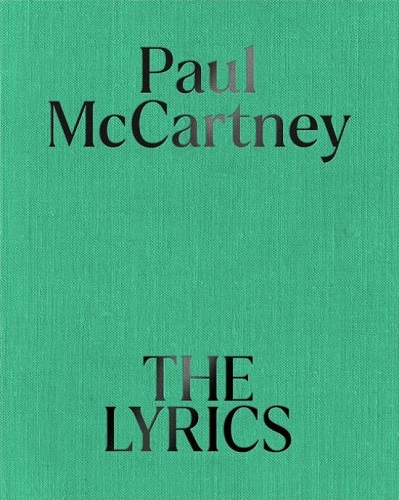
THE LYRICS
by Paul McCartney
#1 NEW YORK TIMES BESTSELLER
A Washington Post Notable Book
Excerpted in The New Yorker
A work of unparalleled candor and splendorous beauty, The Lyrics celebrates the creative life and the musical genius of Paul McCartney through 154 of his most meaningful songs.
From his early Liverpool days, through the historic decade of The Beatles, to Wings and his long solo career, The Lyrics pairs the definitive texts of 154 Paul McCartney songs with first-person commentaries on his life and music. Spanning two alphabetically arranged volumes, these commentaries reveal how the songs came to be and the people who inspired them: his devoted parents, Mary and Jim; his songwriting partner, John Lennon; his “Golden Earth Girl,” Linda Eastman; his wife, Nancy McCartney; and even Queen Elizabeth, among many others. Here are the origins of “Let It Be,” “Lovely Rita,” “Yesterday,” and “Mull of Kintyre,” as well as McCartney’s literary influences, including Shakespeare, Lewis Carroll, and Alan Durband, his high-school English teacher.
With images from McCartney’s personal archives―handwritten texts, paintings, and photographs, hundreds previously unseen―The Lyrics, spanning sixty-four years, becomes the definitive literary and visual record of one of the greatest songwriters of all time.

THE DAWN OF EVERYTHING
by David Graeber & David Wengrow
INSTANT NEW YORK TIMES BESTSELLER
A dramatically new understanding of human history, challenging our most fundamental assumptions about social evolution―from the development of agriculture and cities to the origins of the state, democracy, and inequality―and revealing new possibilities for human emancipation.
For generations, our remote ancestors have been cast as primitive and childlike―either free and equal innocents, or thuggish and warlike. Civilization, we are told, could be achieved only by sacrificing those original freedoms or, alternatively, by taming our baser instincts. David Graeber and David Wengrow show how such theories first emerged in the eighteenth century as a conservative reaction to powerful critiques of European society posed by Indigenous observers and intellectuals. Revisiting this encounter has startling implications for how we make sense of human history today, including the origins of farming, property, cities, democracy, slavery, and civilization itself.
Drawing on pathbreaking research in archaeology and anthropology, the authors show how history becomes a far more interesting place once we learn to throw off our conceptual shackles and perceive what’s really there. If humans did not spend 95 percent of their evolutionary past in tiny bands of hunter-gatherers, what were they doing all that time? If agriculture, and cities, did not mean a plunge into hierarchy and domination, then what kinds of social and economic organization did they lead to? The answers are often unexpected, and suggest that the course of human history may be less set in stone, and more full of playful, hopeful possibilities, than we tend to assume.
The Dawn of Everything fundamentally transforms our understanding of the human past and offers a path toward imagining new forms of freedom, new ways of organizing society. This is a monumental book of formidable intellectual range, animated by curiosity, moral vision, and a faith in the power of direct action.
Includes Black-and-White Illustrations

JUST AS I AM
by Cicely Tyson
“In her long and extraordinary career, Cicely Tyson has not only succeeded as an actor, she has shaped the course of history.” –President Barack Obama, 2016 Presidential Medal of Freedom ceremony
“Just as I Am is my truth. It is me, plain and unvarnished, with the glitter and garland set aside. In these pages, I am indeed Cicely, the actress who has been blessed to grace the stage and screen for six decades. Yet I am also the church girl who once rarely spoke a word. I am the teenager who sought solace in the verses of the old hymn for which this book is named. I am a daughter and a mother, a sister and a friend. I am an observer of human nature and the dreamer of audacious dreams. I am a woman who has hurt as immeasurably as I have loved, a child of God divinely guided by his hand. And here in my ninth decade, I am a woman who, at long last, has something meaningful to say.” –Cicely Tyson

BROKEN HORSES
by Brandi Carlile
#1 NEW YORK TIMES BESTSELLER • The critically acclaimed singer-songwriter, producer, and six-time Grammy winner opens up about faith, sexuality, parenthood, and a life shaped by music in “one of the great memoirs of our time” (Glennon Doyle, author of Untamed).
NAMED ONE OF THE BEST BOOKS OF THE YEAR BY NPR AND AUTOSTRADDLE • “The best-written, most engaging rock autobiography since her childhood hero, Elton John, published Me.”—Variety
Brandi Carlile was born into a musically gifted, impoverished family on the outskirts of Seattle and grew up in a constant state of change, moving from house to house, trailer to trailer, fourteen times in as many years. Though imperfect in every way, her dysfunctional childhood was as beautiful as it was strange, and as nurturing as it was difficult. At the age of five, Brandi contracted bacterial meningitis, which almost took her life, leaving an indelible mark on her formative years and altering her journey into young adulthood.
As an openly gay teenager, Brandi grappled with the tension between her sexuality and her faith when her pastor publicly refused to baptize her on the day of the ceremony. Shockingly, her small town rallied around Brandi in support and set her on a path to salvation where the rest of the misfits and rejects find it: through twisted, joyful, weird, and wonderful music.
In Broken Horses, Brandi Carlile takes readers through the events of her life that shaped her very raw art—from her start at a local singing competition where she performed Elton John’s “Honky Cat” in a bedazzled white polyester suit, to her first break opening for Dave Matthews Band, to many sleepless tours over fifteen years and six studio albums, all while raising two children with her wife, Catherine Shepherd. This hard-won success led her to collaborations with personal heroes like Elton John, Dolly Parton, Mavis Staples, Pearl Jam, Tanya Tucker, and Joni Mitchell, as well as her peers in the supergroup The Highwomen, and ultimately to the Grammy stage, where she converted millions of viewers into instant fans.
Evocative and piercingly honest, Broken Horses is at once an examination of faith through the eyes of a person rejected by the church’s basic tenets and a meditation on the moments and lyrics that have shaped the life of a creative mind, a brilliant artist, and a genuine empath on a mission to give back.

IMMUNE
by Philipp Dettmer
NEW YORK TIMES BESTSELLER • A gorgeously illustrated deep dive into the immune system that will forever change how you think about your body, from the creator of the popular science YouTube channel Kurzgesagt—In a Nutshell
“Through wonderful analogies and a genius for clarifying complex ideas, Immune is a truly brilliant introduction to the human body’s vast system for fighting infections and other threats.”—John Green, #1 New York Times bestselling author of The Fault in Our Stars
You wake up and feel a tickle in your throat. Your head hurts. You’re mildly annoyed as you get the kids ready for school and dress for work yourself. Meanwhile, an epic war is being fought, just below your skin. Millions are fighting and dying for you to be able to complain as you head out the door.
But most of us never really stop to ask: What even is our immune system?
Second only to the human brain in its complexity, it is one of the oldest and most critical facets of life on Earth. Without it, you would die within days. In Immune, Philipp Dettmer, the brains behind the most popular science channel on YouTube, takes readers on a journey through the fortress of the human body and its defenses. There is a constant battle of staggering scale raging within us, full of stories of invasion, strategy, defeat, and noble self-sacrifice. In fact, in the time you’ve been reading this, your immune system has probably identified and eradicated a cancer cell that started to grow in your body.
Each chapter delves into an element of the immune system, including defenses like antibodies and inflammation as well as threats like bacteria, allergies, and cancer, as Dettmer reveals why boosting your immune system is actually nonsense, how parasites sneak their way past your body’s defenses, how viruses work, and what goes on in your wounds when you cut yourself.
Enlivened by engaging full-color graphics and immersive descriptions, Immune turns one of the most intricate, interconnected, and confusing subjects—immunology—into a gripping adventure through an astonishing alien landscape. Immune is a vital and remarkably fun crash course in what is arguably, and increasingly, the most important system in the body.
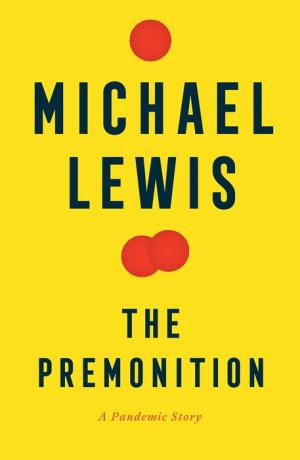
THE PREMONITION
by Michael Lewis
New York Times Bestseller
For those who could read between the lines, the censored news out of China was terrifying. But the president insisted there was nothing to worry about.
Fortunately, we are still a nation of skeptics. Fortunately, there are those among us who study pandemics and are willing to look unflinchingly at worst-case scenarios. Michael Lewis’s taut and brilliant nonfiction thriller pits a band of medical visionaries against the wall of ignorance that was the official response of the Trump administration to the outbreak of COVID-19.
The characters you will meet in these pages are as fascinating as they are unexpected. A thirteen-year-old girl’s science project on transmission of an airborne pathogen develops into a very grown-up model of disease control. A local public-health officer uses her worm’s-eye view to see what the CDC misses, and reveals great truths about American society. A secret team of dissenting doctors, nicknamed the Wolverines, has everything necessary to fight the pandemic: brilliant backgrounds, world-class labs, prior experience with the pandemic scares of bird flu and swine flu…everything, that is, except official permission to implement their work.
Michael Lewis is not shy about calling these people heroes for their refusal to follow directives that they know to be based on misinformation and bad science. Even the internet, as crucial as it is to their exchange of ideas, poses a risk to them. They never know for sure who else might be listening in.
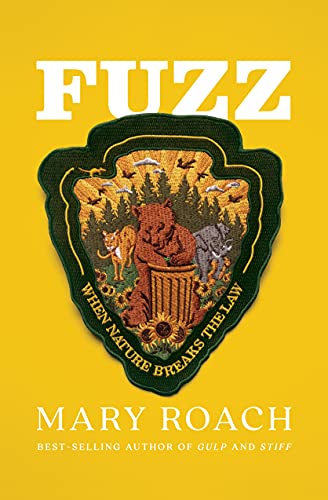
FUZZ: WHEN NATURE BREAKS THE LAW
by Mary Roach
An Instant New York Times Bestseller • #1 Los Angeles Times Bestseller • #1 Indie Hardcover Nonfiction Bestseller • Longlisted for the 2022 Andrew Carnegie Medal for Excellence in Nonfiction • A New York Times Editors’ Choice • A Washington Post Notable Book of 2021 • A Goodreads Choice Award Finalist • An NPR 2021 Best Book • A New York Public Library 2021 Best Book
Join “America’s funniest science writer” (Peter Carlson, Washington Post), Mary Roach, on an irresistible investigation into the unpredictable world where wildlife and humans meet.
What’s to be done about a jaywalking moose? A bear caught breaking and entering? A murderous tree? Three hundred years ago, animals that broke the law would be assigned legal representation and put on trial. These days, as New York Times best-selling author Mary Roach discovers, the answers are best found not in jurisprudence but in science: the curious science of human-wildlife conflict, a discipline at the crossroads of human behavior and wildlife biology.
Roach tags along with animal-attack forensics investigators, human-elephant conflict specialists, bear managers, and “danger tree” faller blasters. Intrepid as ever, she travels from leopard-terrorized hamlets in the Indian Himalaya to St. Peter’s Square in the early hours before the pope arrives for Easter Mass, when vandal gulls swoop in to destroy the elaborate floral display. She taste-tests rat bait, learns how to install a vulture effigy, and gets mugged by a macaque.
Combining little-known forensic science and conservation genetics with a motley cast of laser scarecrows, langur impersonators, and trespassing squirrels, Roach reveals as much about humanity as about nature’s lawbreakers. When it comes to “problem” wildlife, she finds, humans are more often the problem―and the solution. Fascinating, witty, and humane, Fuzz offers hope for compassionate coexistence in our ever-expanding human habitat.
12 illustrations

THESE PRECIOUS DAYS
by Ann Patchett
The beloved New York Times bestselling author reflects on home, family, friendships and writing in this deeply personal collection of essays.
“The elegance of Patchett’s prose is seductive and inviting: with Patchett as a guide, readers will really get to grips with the power of struggles, failures, and triumphs alike.” —Publisher’s Weekly
“Any story that starts will also end.” As a writer, Ann Patchett knows what the outcome of her fiction will be. Life, however, often takes turns we do not see coming. Patchett ponders this truth in these wise essays that afford a fresh and intimate look into her mind and heart.
At the center of These Precious Days is the title essay, a surprising and moving meditation on an unexpected friendship that explores “what it means to be seen, to find someone with whom you can be your best and most complete self.” When Patchett chose an early galley of actor and producer Tom Hanks’ short story collection to read one night before bed, she had no idea that this single choice would be life changing. It would introduce her to a remarkable woman—Tom’s brilliant assistant Sooki—with whom she would form a profound bond that held monumental consequences for them both.
A literary alchemist, Patchett plumbs the depths of her experiences to create gold: engaging and moving pieces that are both self-portrait and landscape, each vibrant with emotion and rich in insight. Turning her writer’s eye on her own experiences, she transforms the private into the universal, providing us all a way to look at our own worlds anew, and reminds how fleeting and enigmatic life can be.
From the enchantments of Kate DiCamillo’s children’s books (author of The Beatryce Prophecy) to youthful memories of Paris; the cherished life gifts given by her three fathers to the unexpected influence of Charles Schultz’s Snoopy; the expansive vision of Eudora Welty to the importance of knitting, Patchett connects life and art as she illuminates what matters most. Infused with the author’s grace, wit, and warmth, the pieces in These Precious Days resonate deep in the soul, leaving an indelible mark—and demonstrate why Ann Patchett is one of the most celebrated writers of our time.
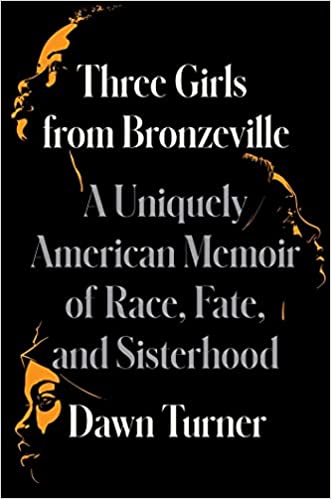
THREE GIRLS FROM BRONZEVILLE
by Dawn Turner
A New York Times and Washington Post Notable Book
A Best Book of 2021 by BuzzFeed and Real Simple
A “beautiful, tragic, and inspiring” (Publishers Weekly, starred review) memoir about three Black girls from the storied Bronzeville section of Chicago that offers a penetrating exploration of race, opportunity, friendship, sisterhood, and the powerful forces at work that allow some to flourish…and others to falter.
They were three Black girls. Dawn, tall and studious; her sister, Kim, younger by three years and headstrong as they come; and her best friend, Debra, already prom-queen pretty by third grade. They bonded—fervently and intensely in that unique way of little girls—as they roamed the concrete landscape of Bronzeville, a historic neighborhood on Chicago’s South Side, the destination of hundreds of thousands of Black folks who fled the ravages of the Jim Crow South.
These third-generation daughters of the Great Migration come of age in the 1970s, in the warm glow of the recent civil rights movement. It has offered them a promise, albeit nascent and fragile, that they will have more opportunities, rights, and freedoms than any generation of Black Americans in history. Their working-class, striving parents are eager for them to realize this hard-fought potential. But the girls have much more immediate concerns: hiding under the dining room table and eavesdropping on grown folks’ business; collecting secret treasures; and daydreaming about their futures—Dawn and Debra, doctors, Kim a teacher. For a brief, wondrous moment the girls are all giggles and dreams and promises of “friends forever.” And then fate intervenes, first slowly and then dramatically, sending them careening in wildly different directions. There’s heartbreak, loss, displacement, and even murder. Dawn struggles to make sense of the shocking turns that consume her sister and her best friend, all the while asking herself a simple but profound question: Why?
In the vein of The Other Wes Moore and The Short and Tragic Life of Robert Peace, Three Girls from Bronzeville is a piercing memoir that chronicles Dawn’s attempt to find answers. It’s at once a celebration of sisterhood and friendship, a testimony to the unique struggles of Black women, and a tour-de-force about the complex interplay of race, class, and opportunity, and how those forces shape our lives and our capacity for resilience and redemption.
